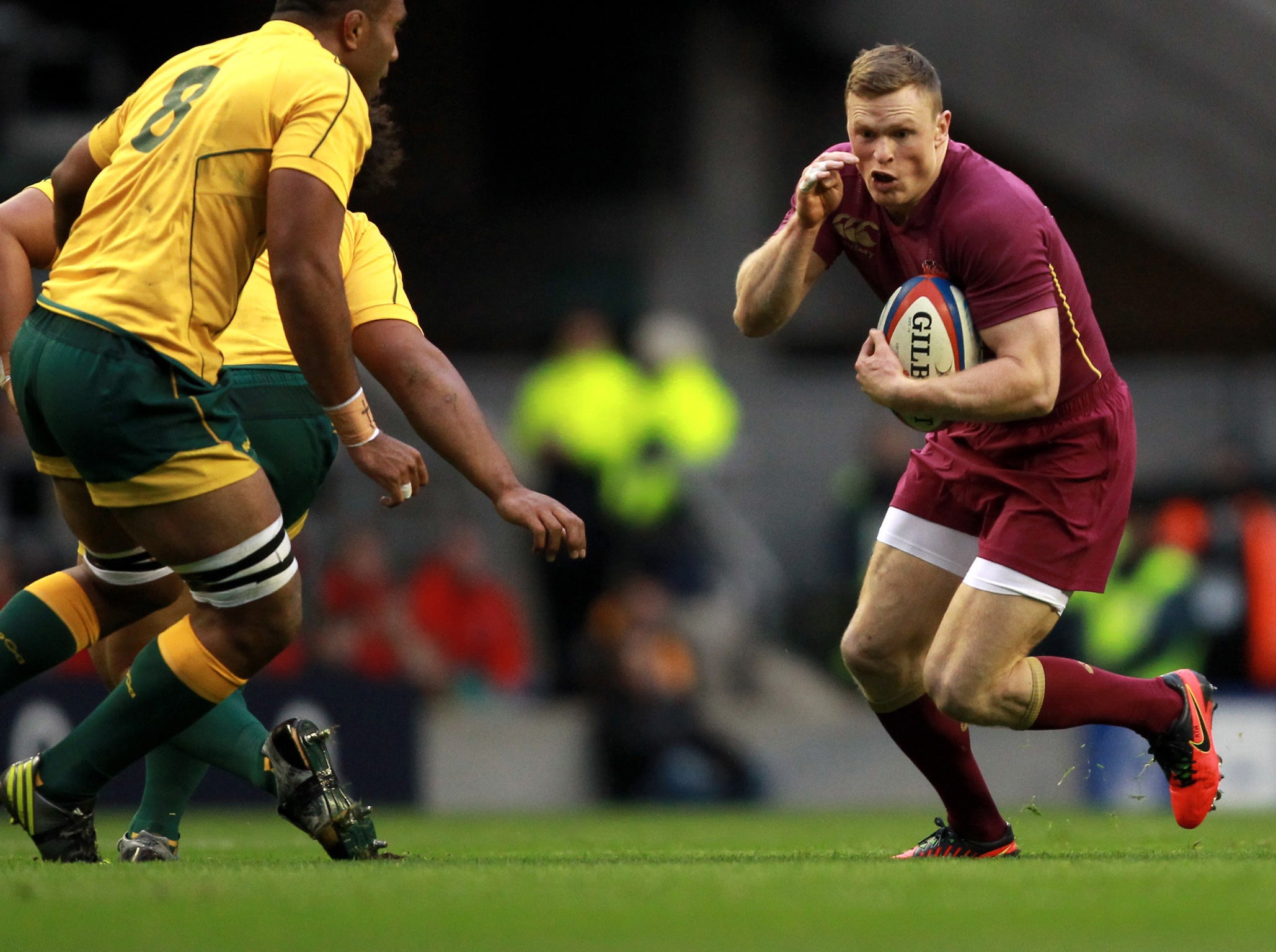Lancaster needs to become the father of invention – and fast
There is no vim. England didn't lack effort. What was missing was a clue

Somewhere in the bowels of Twickenham is a drawing board. Stuart Lancaster and his generals returned to it last night scratching their heads while pledging to take England to the next stage. They will work hard, look at where things went wrong, take the positives – there are always positives, apparently – and come back stronger, because only in defeat do we really learn about ourselves.
Oh dear. Not again. It is the same song sung by the English rugby establishment since Jonny kicked us into a state of nirvana all those years ago in Sydney. Lancaster sounded an awful lot like his predecessor, Martin Johnson, explaining how Test rugby is the ultimate challenge, how, if you don't hit your percentages, the fine margins will claim you. All we want, fellas, is to see England play with the same verve and flair as our southern hemisphere cousins.
This was supposed to be the easy one of the three, up against a broken team low on confidence and shorn of key players. England did not lack effort. What was missing was a clue how to trouble a resolute defence. There is no vim, no obvious vision for how they want to play. Australia were a kaleidoscope in possession, letting off flares across the park. England ran in straight lines.
The crowd gave a summary verdict, sprinting for the exits long before the referee called a halt to the afternoon's lack of entertainment. The optimism that had bubbled in the bars around Twickenham station proved wholly without foundation. More than 80,000 loyal souls turned up for the second week in succession. This is not a cheap afternoon. For the price of one ticket, a father can take his family to the cinema to watch James Bond fall out of the sky and still have change for a burger.
In the myopic environment of Penny Hill Park, where England return to prepare for the visit of South Africa next week, the focus is on technical issues. Someone should blow a whistle, gather the squad and the coaches under the posts and explain that sport is something to be enjoyed, not endured. And to think two years ago, Johnson was warning Chris Ashton of the dangers of showboating.
There was no Ashton swan dive to light up this autumn afternoon, very little at all in fact from the pretty boy in orange boots. It was not his fault. Starved of ball in the right-wing outpost, Ashton was as much a spectator as those paying £100 in the stands. He had to wait 20 minutes before getting his hands on the ball but, in isolation, it amounted to nothing more than a laser-like supernova burning out all too quickly in the midfield.
This result was a crushing blow for Lancaster. England have still to establish an identity under the school-teacher turned coach. There is an honesty and a vigour about their work but not yet the kind of invention and understanding borne of confidence and belief.
The fast ball, the gain-line busting chips and kicks were all Australian. Though England were ahead early, there was never the authority in their play to threaten the debunking Australia suffered in Paris. The French victory was predicated on forward dominance. The exit of Joe Marler inside 50 minutes told the story of England's front-row struggles.
Australia ripped open the pitch to put England under pressure at every opportunity. In response England reverted to the rugby-by-numbers template that ultimately did for Johnson. The English supporters filled their mornings with optimism and anticipation of a thunderous afternoon taking down the Aussie foe.
They did not come to watch England plod resolutely through phase after predictable phase. They yearned to see the ball move down the line at pace, to see someone drop a shoulder and shift through the gears. They did. And if you carried an Australian passport you would have been thrilled with the sight of half-backs Nick Phipps and Kurtley Beale prompting and probing, chipping and fizzing.
Outside them Nick Cummins on the wing and full-back Berrick Barnes ran audacious lines. Cummins would have taken a barn door off its hinges crossing the line for Australia's try. The ball was always moving at pace. England churned through too many phases in the first hour of play. There was some improvement in the final quarter but too little to suggest England were carrying out a plan.
The captain, Chris Robshaw, joined his coach in rolling out worthy platitudes about working hard to achieve their goals. There is, he told us, a great desire to succeed. His desire is no greater than ours to be entertained, to feel our afternoon was well spent. While you are sitting at your drawing board, Chris, you might want to think about that.
Subscribe to Independent Premium to bookmark this article
Want to bookmark your favourite articles and stories to read or reference later? Start your Independent Premium subscription today.

Join our commenting forum
Join thought-provoking conversations, follow other Independent readers and see their replies